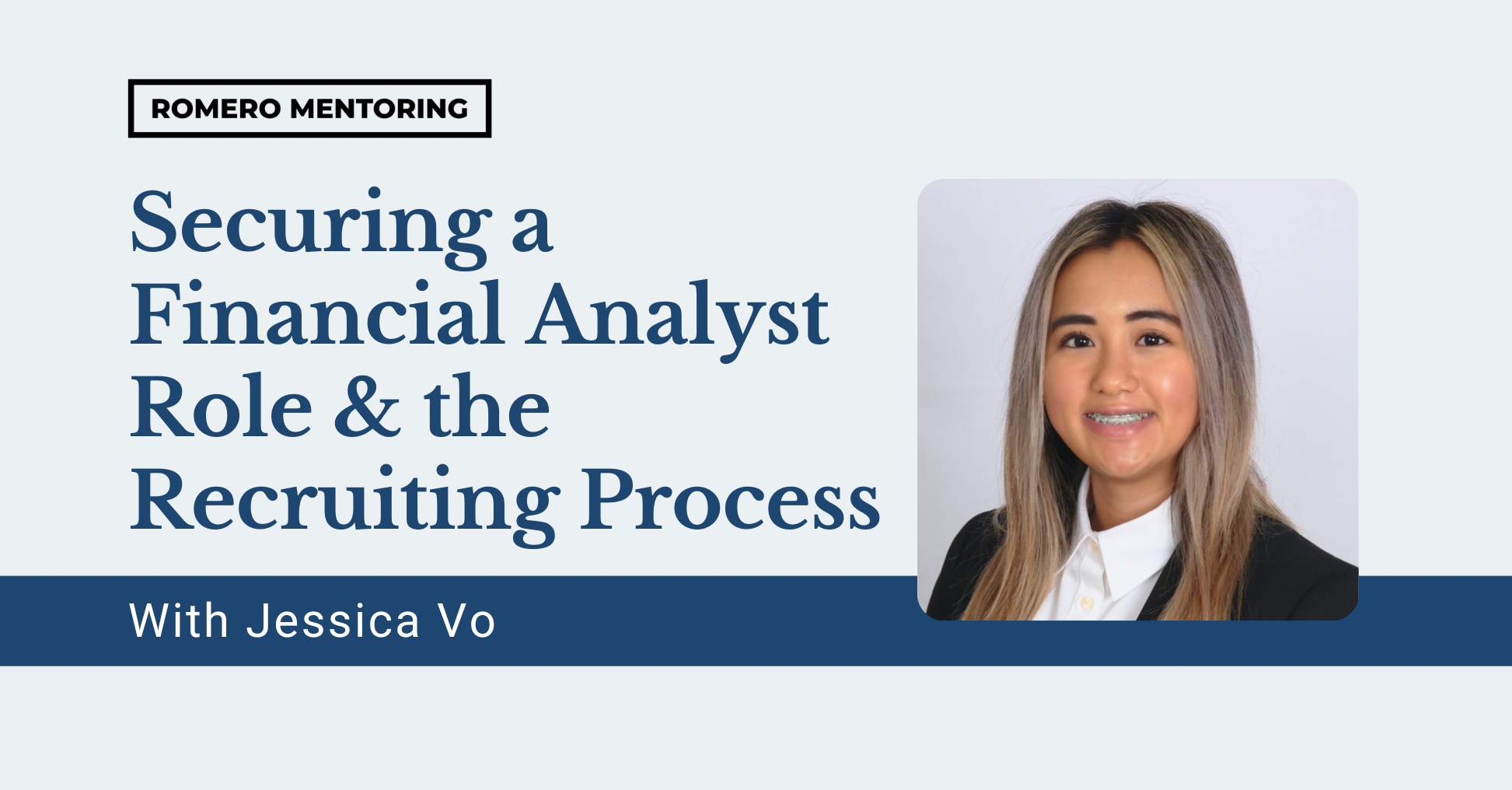Finance majors have a lot of different roles that they can apply to, and finance can be a tough field to break into, but besides working at the bulge bracket banks as an investment banking analyst, there are a variety of opportunities out there! Here is a list of careers and brief descriptions of the roles finance majors can apply to within the sell-side, finance adjacent, and buy-side within finance. Special thanks to Baruch Investment Management Group for helping with this list!
Sell-Side Career Opportunities for Finance Majors
Investment Banking: Helps clients raise money through issuing securities. Other job duties for these finance analysts and investment banking analysts include assisting clients with mergers and acquisitions (M&As) and advising them on unique investment opportunities such as derivatives.[1] According to Glassdoor.com, the average salary for an investment banking analyst ranges from $76k – $220k.
Sales and Trading (at a bank): S&T professionals help institutional investors earn money and deliver returns. The transactions in S&T are placed by hedge funds and asset manager clients that want to trade stocks, bonds, FX, derivatives, and commodities.[2] According to Wall Street Prep, a sales and trading analyst can make anywhere between $135k – $160k in their first year.
Wealth Management: Concerned with providing financial services primarily for high net worth individuals and ultra-high net worth individuals. These finance analysts must meet the complex needs of a client which includes a broad range of services—such as investment advice, estate planning, accounting, retirement, and tax services.[3] According to Glassdoor.com, the average salary for a wealth management advisor ranges from $64k – $150k.
Credit Risk: Uses a variety of analytical techniques to evaluate the risks associated with lending to consumers and to evaluate business risks. Analysts typically assess credit reports, payment histories, financial statements, and job histories.[4] According to Glassdoor.com, the average base salary for a credit risk analyst is $70,426.
Equity Research: Works for both buy-side and sell-side firms in the securities industry producing research reports, projections, and recommendations surrounding companies and stocks.[5] According to Glassdoor.com, the average base salary for an equity research analyst is $113,072.
Capital Markets: Help companies meet a wide variety of financial goals such as the origination and execution of equity offering and the issuing of debt.[6] Capital markets generally consist of equity capital markets, debt capital markets, and leveraged finance. These finance analysts focus on their respective products and know the markets for these products inside and out.[7] According to Glassdoor.com, the average base salary for a capital markets analyst is $79,481.
Corporate Finance Analyst: Deals with day-to-day financial operations and handles short- and long-term business goals.[8] Corporate finance is a subcategory of investment banking. According to Glassdoor.com, the average base salary for a corporate finance analyst is $83,574.
Finance Adjacent Career Opportunities for Finance Majors
Federal Reserve Economist: Conducts cutting-edge research on a broad range of topics in economics and finance and contributes substantive policy analyses used by the Board of Governors and the Federal Open Market Committee. Board economists share their research at academic conferences and publish it in peer-reviewed scholarly journals and other outlets.[9] According to Glassdoor.com, the average base salary for a federal reserve economist is $187,705.
Political Risk Analyst: Gathers information on an area or a country, determines the causes and sources of any related risks, and forwards their findings to those making investment decisions.[10] According to Glassdoor.com, the average base salary for a political risk analyst is $88,516.
Economic Researcher: Studies the ways society uses scarce resources such as land, labor, raw materials, and machinery to produce goods and services. Economists conduct research, collect, and analyze data, monitor economic trends, and develop forecasts.[11] According to Glassdoor.com, the average base salary for an economic researcher is $68,600.
Transactional Attorney: Assists organizations or agencies. They may create/form legal entities; draft and negotiate contracts, design personnel policies, and/or counsel on real estate, regulatory, intellectual property, and licensing matters.[12] According to Glassdoor.com, the average base salary for a transactional attorney is $148,080.
Litigator: Represents plaintiffs and defendants in civil lawsuits. They manage all phases of the litigation from the investigation, pleadings, and discovery through the pre-trial, trial, settlement, and appeal processes.[13] According to Glassdoor.com, the average base salary for a litigator is $63,617.
Accountant (at Big 5): Summarizes current financial status by collecting information; preparing balance sheets, profit and loss statements, and other reports. Substantiate financial transactions by auditing documents.[14] According to Glassdoor.com, the average base salary for an accountant is $65,012.
Buy-Side Career Opportunities for Finance Majors
Hedge Fund Analyst: Quantitative research in order to identify the assets to trade with the fund’s money that adheres to its trading strategy and mandate. Analysts may research individual securities, market sectors, macroeconomic trends, or all of the above.[15] According to Glassdoor.com, the average base salary for a hedge fund analyst is $130,067.
Private Equity Associate: Responsible for leading deal processes from beginning to end. These finance analysts work with private equity firms to analyze and monitor data, look for potential investment opportunities for their firms, and raise capital from outside investors.[16] According to Glassdoor.com, the average base salary for a private equity associate is $126,380.
Portfolio Managers: Primarily responsible for creating and managing investment allocations for private clients. Some portfolio managers work with individuals and families, while others focus their attention on institutional or corporate investors.[17] According to Glassdoor.com, the average base salary for a private equity associate is $159,614.
Prop Traders: Uses the capital provided by a company to conduct trades involving asset classes like futures, stocks, currencies, and commodities. The more complex trades include derivatives of these assets.[18] According to Glassdoor.com, the average base salary for a prop trader is $66,317.
Venture Capitalist: Provides capital to companies exhibiting high growth potential in exchange for an equity stake. This could be funding startup ventures or supporting small companies that wish to expand but do not have access to equities markets.[19] According to Glassdoor.com, the average base salary for a venture capitalist is $62,664.
High-Frequency Trader: Involves buying and selling securities such as stocks at extremely high speeds. Traders may hold the shares they buy for only a fraction of a second before selling them again.[20] According to Glassdoor.com, the average base salary for an HFT is $113,077.
Pension Managers: Responsible for the administration of retirement plans and maintains plan records and ensures compliance with federal regulations.[21] According to Glassdoor.com, the average base salary for a pension manager is $143,393.Outside of investment banking, there are a lot of opportunities for students to choose from within the finance realm. I hope this article helped broaden your perspective within each role.
Romero Mentoring’s Analyst Prep Program

The Analyst Prep Program teaches the technical and practical skills that investment banks, hedge funds, and private equity & consulting firms look for in a candidate. Students begin with little to no technical skills and develop into fully prepared professionals who can perform as first-year analysts from day one through the program’s training and internship.
Our Story
Since 2016, Romero Mentoring investment banking training and internship programs have been delivering career mentoring to job seekers, professionals, and college students pursuing careers in finance. We’ve helped hundreds of students start their careers on Wall Street through our Analyst Prep and Associate Programs. Our graduates work at top-bulge bracket banks and consulting firms, including Goldman Sachs, JP Morgan, McKinsey, and many more.
In just 15-weeks you can become a world-class finance professional with our fully immersive internship and Investment Banking Training Programs.
Sources:
- Investment Banker: Job Description & Average Salary. Investopedia
- Sales & Trading vs Investment Banking: How to Pick the Best Internship or Job. Mergers and Inquisitions
- Wealth Management. Investopedia
- Credit Risk Analyst: Career Path and Qualifications. Investopedia
- Equity Research Analyst: Career Path and Qualifications. Investopedia
- Capital Markets Group. Investopedia
- Investment Banking Vs. Capital Markets – How Different Are They? Wall Street Oasis
- Investment Banking vs. Corporate Finance: What’s the Difference? Investopedia
- Economists. Board of Governors of the Federal Reserve System.
- Career Opportunities in Political Risk Analysis
- What do economists do? from the U.S. Department of Labor’s 1994-95 Occupational Outlook Handbook
- Transactional Law. Harvard Business School
- The Role of the Litigation Attorney. The Balance Careers.
- Accountant Job Description. Top Resume.
- What Analysts Do at a Hedge Fund. Investopedia
- Become a Private Equity Associate. Noble Desktop
- What a Portfolio Manager Does and Earns. Investopedia
- How to Become a Prop Trader – 7 Steps to Getting Funded. Earn2trade
- Venture Capitalist (VC). Investopedia
- How Does High Frequency Trading Work? Zacks
- Pension Administrator. Salary.com





